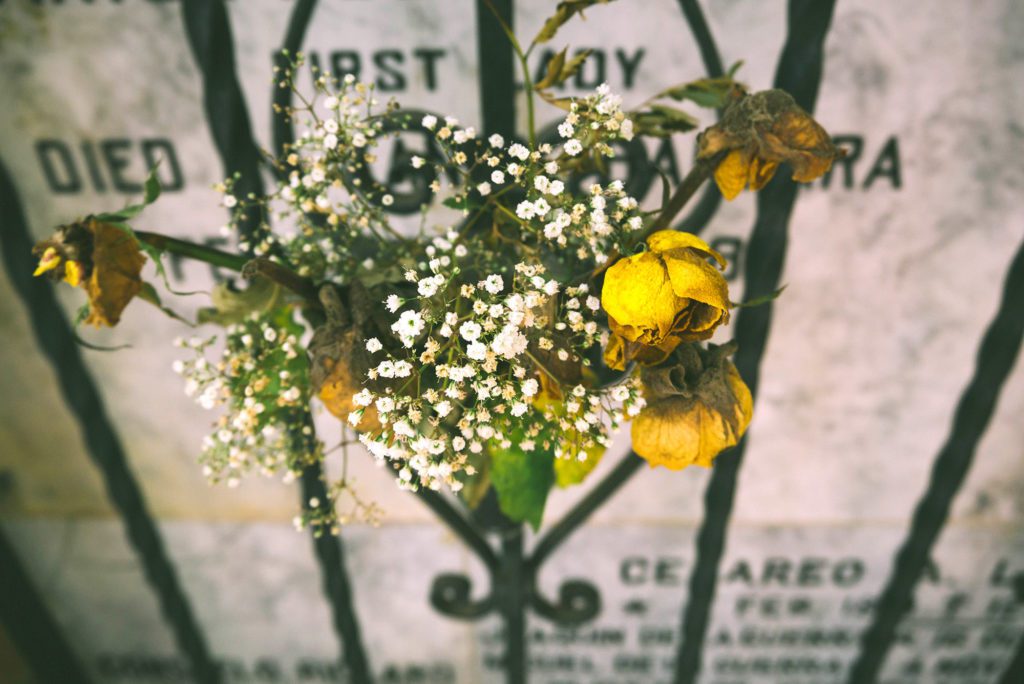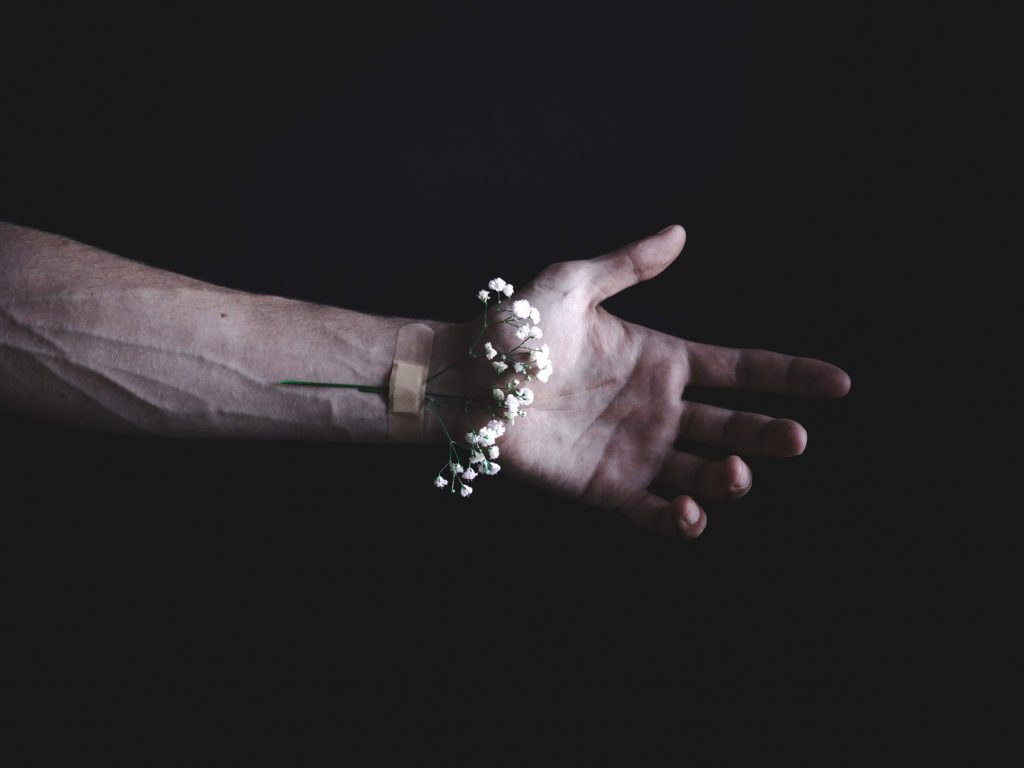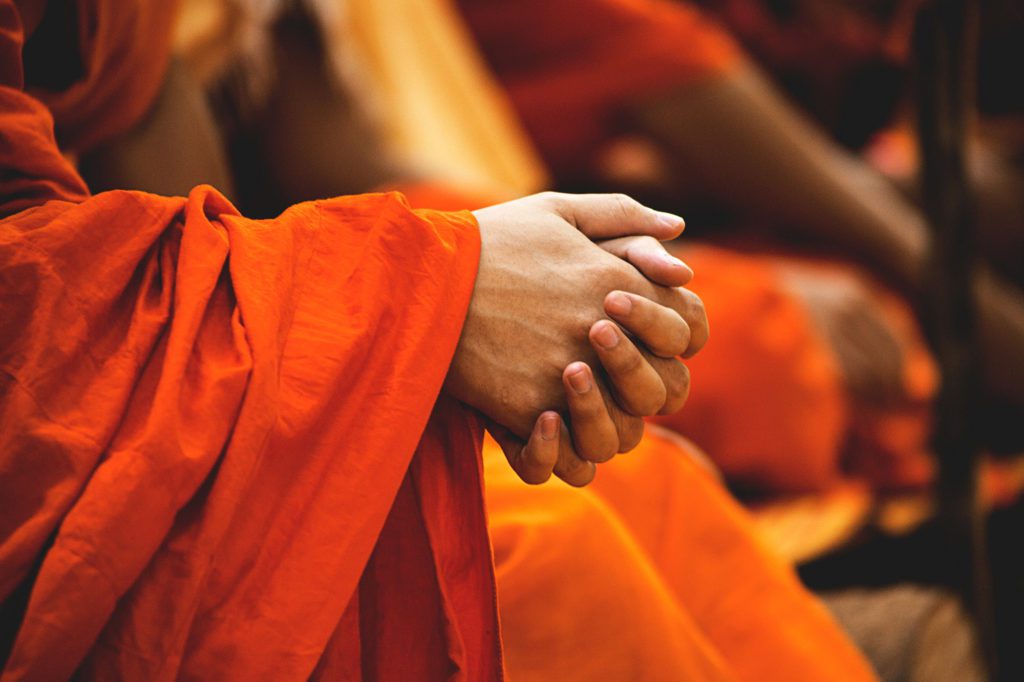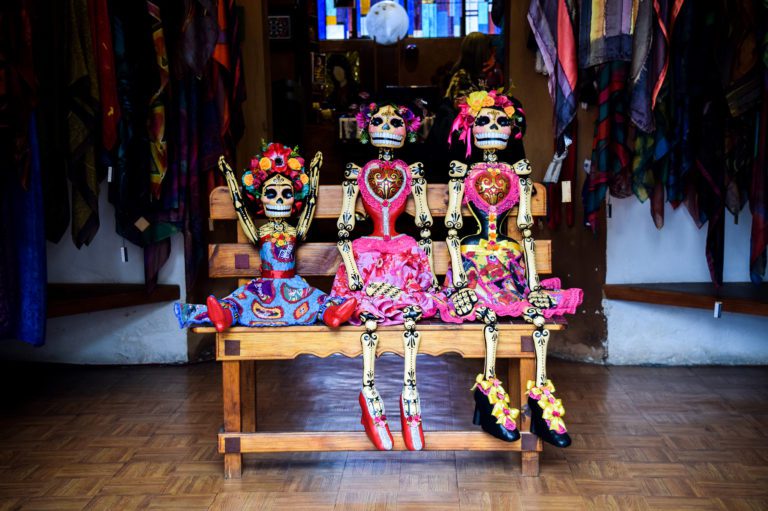The end of October. Stores are filled with skulls of all sizes and colors, cobwebs and pumpkins. These are the types of festivities that what we see as the Day of All Saints, Day of the Dead, or Halloween approaches. Surely we’ve all heard (or even said) that this celebration, related to death or the deceased, has nothing to do with our traditions. However, the streets are full of flower stands, cemeteries are packed with families visiting their loved ones, candles are lit all day…all of this may sound more like what we are accustomed to seeing on these first few days of November in Spain.
There are innumerable rituals practiced at this time of year. In fact, if we reviewed all of these cultural events, we would realize that there are probably as many celebrations of this day as there are different perspectives about the concept of death.
We all understand that when someone dies, a loss occurs, and with that loss, we begin to mourn. During the mourning period, different processes take place such as the relocation of the deceased, adaptation to situations in our life in which he or she is no longer present, expression of our pain… However, how we understand this loss and mourn over it is very much associated with our geographical location.

For example, in the western culture, where the attachment to materialism is fostered, a funeral is held for the loss of the loved one so that he or she can be honored. This attachment to materialism pushes us to try to preserve or retain the loved one’s presence, thus preventing us from “letting go.” In the event of a funeral, everything that surrounds this rite has a sad and melancholy vibe to it. For example, we all recognize the meaning of a person who is dressed completely in black. Mourning, that time in which customs are adopted such as wearing black or not attending certain festive events, is another way to demonstrate the sadness felt by the loss of the loved one even after a lot of time has passed.
However, let’s go to Mexico, for example. In this country when the Day of the Dead is celebrated, the streets are filled with color and figures of skeletons adorned with flowers to honor those who are no longer here with us. The day is celebrated like a big party with a plenitude of food, drinks, and music. Even children are familiar with the subject of death, which is something our culture and others to this day still consider taboo.
How can this difference affect the moment of understanding death and its grieving process?
As we know, overcoming the death of a loved one depends on different aspects. The mourning varies depending on how it happened and what role that person had in our lives, but also aspects related to our personal resources.
Some of these personal resources that we have access to may be our resilience or ability to cope with adverse situations, our mental health care, our ability to express and channel our emotions and, whether we like it or not, our culture.

It’s very likely that the Mexican children we’ve mentioned, who are familiar with the death process, can react in a more adaptive way to the loss of a loved one. Being unafraid to talk about the subject and approaching the concept of loss can help us develop a certain acceptance. This acceptance will help us when we have to face a process as hard as losing a person close to us.
In this sense, leaving behind the culture of attachment and the taboo that has been created around the issue of death can help us find an intermediate point in which we allow ourselves to express our pain and accept the loss as an inevitable process.

How can we deal with death in a better way?
Maybe we will never get to organize a funeral like the Toraja people, who celebrate death by spending the life savings towards a great farewell party. We may also never see death as a liberation that allows us to evolve into a better being, as in Buddhism. However, maybe we can start the individual process of personal enrichment by understanding the loss in a way that is lighter and in line with our reality.
We are the ones who decide how to face this painful situation and turn it into a resource that helps us learn to live without certain people in our lives.
Furthermore, when we don’t feel capable by ourselves, we can always count on the help of mental health professionals to help us deal with this loss in the best possible way.











